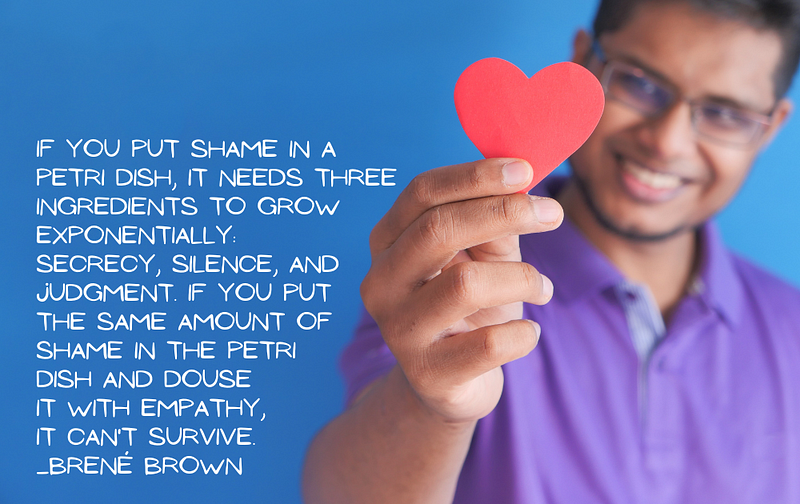Empathy and Compassion: The Power to Overcome Shame
Written on
Chapter 1: The Healing Power of Compassion
As you navigate through life, remember that you are not alone and that you are deeply cherished by God.

I recently watched a powerful conversation between Oprah and Viola on Netflix, which prompted me to pause and jot down a significant statement. Viola Davis expressed that in the presence of compassion and empathy, shame can diminish because you are seen for far more than your struggles. This profound insight resonates deeply with many of us. The transformative nature of compassion and empathy can effectively dispel feelings of shame.
Next time you find yourself in a distressing situation, whether with others or within, consider shifting your inner dialogue from one of shame to one of compassion and understanding.
Upon entering my Master's program in Spiritual Formation at Portland Seminary, I was comforted by their tagline: "Be Known." It served as a welcoming invitation, especially amidst a predominantly white environment in Portland, Oregon. Each professor encouraged me to express my true self in my projects. While I grappled with being the only Asian student, I felt a calling to pursue this path, persevering until I proudly graduated.
A Psychology Today article discussing Brené Brown’s research in her book, I Thought it Was Just Me, highlights the link between empathy and shame: empathy mitigates shame, while sympathy can worsen it. The distinction between experiencing someone’s feelings and merely observing them is crucial. Shame creates a sense of isolation; empathy, conversely, helps individuals recognize they are not alone, effectively serving as a remedy for shame.
Reflection Questions
Consider a moment when you felt shame. Close your eyes and reflect on that experience. Was it a result of your own actions or something someone else said or did? As you contemplate this, pay attention to where you feel that shame in your body. Focus on that area for a few moments, taking deep breaths.
What steps have you taken to confront this shame? If you haven’t yet, take some time to write about it. Where does this shame originate? What is its underlying cause?
Now, visualize yourself standing on a hill, observing your ashamed self below. What words would you like to share with yourself? Imagine that Jesus, Buddha, or your Higher Power is beside you. What wisdom do they impart regarding your situation? What would you like to express to them? Finally, envision yourself handing that shame over to Jesus, Buddha, or your Higher Power. Allow yourself to sit with that feeling of release for a while.

Remember, you are not alone. You are loved and your existence matters.
“O Lord, let me not be put to shame, for I call upon you; let the wicked be put to shame; let them go silently to Sheol.” — Ps. 31:17
May your spirit find refreshment.
Chapter 2: Insights from Brené Brown
In the video "Shame & Empathy" by Dr. Brené Brown, she explores how empathy plays a vital role in overcoming shame. This insightful discussion emphasizes the importance of connection and understanding in healing emotional wounds.
In another inspiring video, "Brené Brown: 'Shame Cannot Survive Empathy'," she illustrates how empathy can be a powerful force against shame, encouraging us to embrace our vulnerabilities and connect with others on a deeper level.